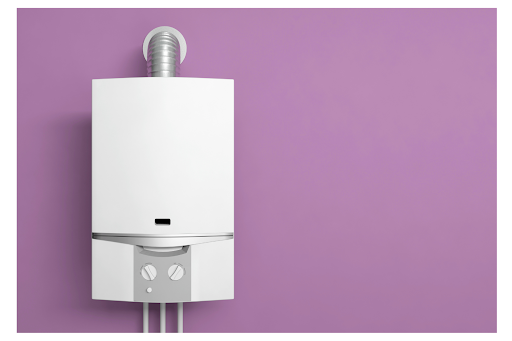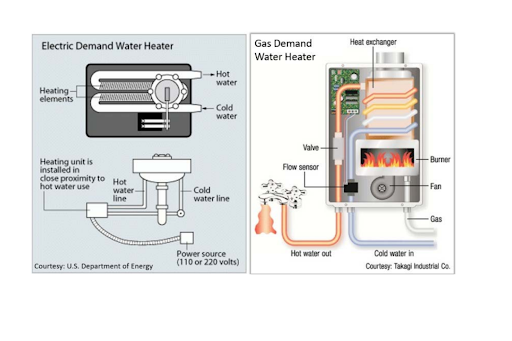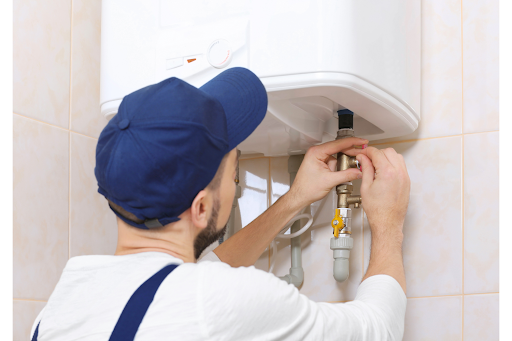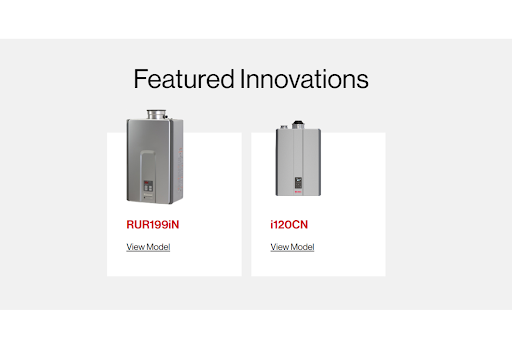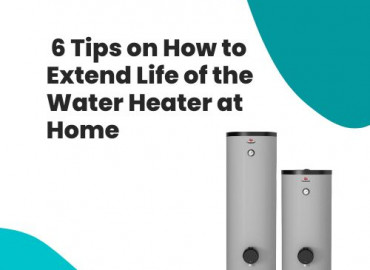Buying a Tankless Water Heater: What You Need to Know
In recent years, tankless water heaters have become increasingly popular. The convenience and cost-effectiveness of tankless water heaters make them more appealing than traditional ones. According to the Research and Market’s — North American Tankless Water Heater Market Report 2020-2026, the market demand for tankless water heaters is expected to grow in the upcoming years by 7% (CAGR). They are gaining popularity both in the residential and commercial sectors because of their innumerable benefits.
You may wonder why tankless water heaters and how to become a part of the upcoming trend. Worry not, we got you! From functioning to installing tankless water heaters, we will discuss every aspect in detail.
What Is a Tankless water heater?
A tankless water heater is an appliance that heats water without using any storage tank. As an advancement of traditional heating appliances, it resolves serious tank issues such as corrosion, leaks, bursts, etc. It heats water as and when needed with no provision for future storage and is often known as an on-demand, instantaneous, or flash water heater.
Although the history of tankless water heaters dates back to the 1930s, David Seitz was the first person to modify them for residential purposes. Technological advancements are making tankless water heaters more compact and home-friendly.
According to the Energy Saver, tankless water heaters are 8-34% more efficient than traditional water heaters, marking the advantage of going tankless.
The working principle of a tankless water heater
Unlike conventional water heaters, a tankless water heater has no provision for storing hot water, yet every time you turn on a hot water tap, you get warm water within a few minutes.
Ever wondered how?
What goes behind the instant supply of hot water?
(Source: Energy Star – Technical Bulletin)
Step-by-step working of a gas tankless water heater :
- Step 1: Turning on the hot water tap as it triggers the water flow sensor to start the water heating process
- Step 2: A concentric ventilation system starts drawing air into the burner for combustion
- Step 3: The ignitor sparks on detecting proper combustion
- Step 4: On detection of the flame, modulating gas valve supplies fuel to the burner as and when required
- Step 5: The heat exchanger concentrates heat on cold water flowing through the pipe to warm it
- Step 6: A thermistor (temperature sensor) detects the temperature of the water before releasing it to ensure water is at the requested temperature
To ensure water is neither too hot nor too cold, the thermistor, mixer valve, gas valve, and water-flow valve work together in sync.
Similarly, in the electric tankless water heaters, power plays the role of fuel, warming up the water. For a better visual understanding of electric tankless water heaters, click here.
Now that you know how tankless water heaters work, it’s time to discuss their advantages and disadvantages.
Pros of tankless water heaters
As tankless water heaters are upgrades of conventional water heaters, they possess certain advantages as given below:
Saves Energy
Tankless water heaters are more energy efficient than traditional ones as they heat water quickly and only when needed. According to the US Environmental Protection Agency, tankless water heaters consume 45-60% less energy than minimum standards. Therefore, a tankless water heater helps save approx $1800 over its expected life of 20 years.
Natural Resources Canada (NRCan) also encourages Energy Star-certified tankless water heaters as they consume 30% less energy than tank types.
Continuous supply of hot water
Tankless water heaters ensure a continuous supply of hot water when needed, unlike tank water heaters where hot water is limited to the extent stored in the tank. With tankless water heaters, you won’t face hot water shortages as long as you have enough fuel.
Long life expectancy
Tankless water heaters have an average estimated life of 20 years, which is longer than storage types. A few parts of tankless water heaters are easily replaceable, which further extends their lifespan. Proper care and maintenance also improve the efficiency and life of your tankless water heater
Compact
As tankless water heaters are compact and have no tank, they take up less space than conventional water heaters. Hence, they are better suited for small spaces.
Safer
Tankless water heaters are safer than conventional ones because the issues related to tanks like bursts, leaks, explosions, sediment build-up, bacterial infection, etc., no longer exist. Moreover, new tankless water heaters have features that save them from sudden shocks and machine failures.
Cons of tankless water heaters
The advantages of tankless water heaters are undeniably more than the disadvantages, but like any other machine, they also have a few drawbacks. A few drawbacks of tankless water heaters are as follows:
Higher upfront cost
You may be hesitant to opt for tankless water heaters due to their higher upfront cost, but they last longer and save you more energy. Where a conventional water heater costs $600-$2000 (on average), a tankless water heater costs $1000-$3500, making it expensive. Even the installation labor cost for tankless is higher.
Cold water sandwich
Sometimes, hot water left in pipes flows first, followed by sudden cold water, and then hot water flows smoothly. It is known as a cold water sandwich. It happens quite often but is not a major disadvantage.
Inconsistent temperatures
If you use multiple hot water outlets (showers, taps, etc.) at once, you may face inconsistent water temperatures. A simple fix is to install multiple tankless water heaters around the house if you have a large family or need a lot of hot water at different locations around the house.
Power dependence
Since there is no water tank connected to the tankless water heater system, there is no hot water supply in the absence of fuel or power.
Types of tankless water heaters
There are several types of tankless water heaters, depending on the fuel, condensation, size, etc. Various types of tankless water heaters are discussed below:
Gas tankless water heaters
Natural gas or propane-powered water heaters may seem costlier to install due to additional venting requirements. But the high flow rate and lower energy bills make the initial investment worth it. They tend to last longer than electric water heaters.
According to NRCAN’s 200 Gas-fired, tankless water heaters survey, Energy Star certified gas tankless water heaters help save $521 annually and $5118 over the lifespan of 20 years.
Check out Forbes Advisor’s top-ranked gas tankless water heaters for July.
Electric tankless water heaters
Electricity-powered electric tankless water heaters are cheaper to install because of no special ventilation requirements. They are highly efficient but tend to have a lower flow rate and shorter lifespan.
Point-of-use tankless water heaters
The point-of-use tankless water heaters are small in size, designed for specific hot water use in sinks, kitchens, etc., and are usually located near the shower or faucet. They take up less space and are suitable for low hot water demand.
Whole house tankless water heaters
A whole-house tankless water heater can satisfy the hot water needs of a large family. If you have a big family who needs hot water at the same time, say everyone needs a hot shower in the morning, a whole house tankless water heater is the right choice for you. They are more expensive than point-of-use water heaters, but their efficiency makes up for the cost.
Condensing tankless water heaters
Condensing tankless water heaters produce hot combustion gasses like other tankless water heaters, but they cool the hot gasses before venting them. Since the gas is cooled down, there is no need for an expensive venting system. Corrosion-resistant, affordable PVC pipes assist in efficient ventilation.
Non-condensing tankless water heaters
Non-condensing tankless water heaters release hot corrosive combustion gasses. They need expensive ventilation systems and produce harmful by-products. Since the risk of corrosion is high and the gasses released are hot, they need both heat and corrosion-resistant venting systems, which are pricey.
How do you decide on the tankless water heater size for your home?
As you now know what a tankless water heater is, its functioning, pros, cons, and types, you might be wondering how to determine the right size for your house. The right size depends on various factors such as peak demand, the number of showers, faucets, etc. The following two factors help you determine the right size of the tankless water heater for your home:
Temperature Rise
Temperature rise is an important consideration when choosing the size of a tankless water heater. It is the difference between the temperature of input groundwater and desired hot water temperature. Say, the groundwater temperature during winters is 50℉ (10℃) and your desired temperature level is 120℉ (49℃), that means you need a temperature rise of 70℉ (39℃). Hence, you should invest in a tankless water heater that can produce enough BTUs to raise the temperature by 70℉ (39℃).
Peak Demand
Peak demand is another important consideration when choosing the right tankless water heater. It is the maximum amount of hot water consumed by a house when every tap, faucet, shower, etc., is running. Gallons Per Minute (GPM) measures the flow of water.
To determine GPM for different water heads, simply divide 60 by the number of seconds it takes a tap/shower/faucet to fill a one-gallon container. A tap that fills a gallon container in 10 seconds will have a GPM of 6 (60/10).
These two factors help determine the size of the tankless water heater for your home with the help of different formulas as specified by various brands or HVAC professionals.
Tankless water heaters cost
Following the determination of the size of your tankless water heater, you may wonder about installation costs, maintenance costs, and other expenses. A few main expenses directly impacting your decisions are as follows:
Installation cost
Generally, the cost of installing a tankless water heater ranges somewhere between $1200-$2500. Plumbers charge more for tankless water heaters due to the intricate details involved in their installation. Somewhat, it may cost between $150-$600.
Maintenance cost
Like with any other machinery, maintenance of tankless water heaters is imperative for efficient working and long life. A normal preventive maintenance visit may cost you between $50-$200, depending on the extent of work.
To keep your tankless water heater up and working, you should flush it out once a year. Refer to the video to flush tankless water heaters easily.
Venting
Non-condensing tankless water heaters require an efficient venting system for removing hot and harmful gasses. Whereas, condensing tankless water heaters simply use inexpensive PVC pipes. Therefore, make provision for heat and corrosion-resistant venting systems if you opt for non-condensing tankless water heaters.
Operating cost
A tankless water heater is directly dependent on its fuel. The cost of running a tankless water heater depends on the type of fuel used by it. For instance, operating gas or propane-powered tankless water heaters are cheaper than electric ones as gas/propane are more affordable than electricity.
The life expectancy of a tankless water heater
A tankless water heater has a life expectancy of around 20 years compared to 10-15 years of conventional water heaters. With proper care and maintenance, you can elongate its life. Therefore, a tankless water heater has a longer life expectancy and a lower corrosion rate than a conventional water heater.
Top brands for tankless water heaters
Now that you have decided on the size of your new tankless water heater, the next step is to choose the brand. The top 5 brands of tankless water heaters are as follows:
Rinnai
Rinnai is a multinational company that manufactures water heaters, furnaces, and gas kitchen appliances. It was founded in the 1920s and has been in the business for more than 100 years. It has made a big name for itself among the people of the US, Canada, Hongkong, Japan, Malaysia, etc. The latest featured tankless water heater innovations by Rinnai are RUR199iN and i120CN. You can check out customer reviews at Home Depot for the above innovations.
Rheem
Rheem is an American company that manufactures water heaters, boilers, heating, air conditioning, and ventilation equipment. Its operations are spread across different nations such as the US, Canada, Mexico, Kuwait, Singapore, UAE, etc. Whether you are looking for Point-of-use tankless water heaters or the Whole house, Rheem caters to all needs.
Stiebel Eltron
Stiebel Eltron is a family-owned Germany-based business dedicated to manufacturing central heating products. It manufactures products with low carbon emissions and has become a green energy specialist. From Point-of-use to Whole House, from solar to electric, it provides tankless water heater solutions for all needs.
A.O. Smith
A.O. Smith is an American company that manufactures both residential and commercial water heaters and boilers. It has made its name as an established manufacturer of water heaters in North America. It values innovation as a primary source of growth and offers a variety of Energy Star-qualified tankless water heaters for different needs.
EcoSmart
EcoSmart is a well-established name for tankless water heaters. It has undertaken a green initiative to develop water heaters that are more energy efficient. It produces a wide range of tankless water heaters like point-of-use, radiating, whole house, etc. Its patented ‘Self Modulating Technology’ helps save up to 50% on water heating bills. EcoSmart lets you adjust the temperature even up to one degree.
These top five brands of tankless water heaters control a major chunk of the market.
Tankless water heater rebates
Tankless water heaters are more beneficial for the environment than conventional ones. However, people are often reluctant to invest in them because of their high cost. Government, companies, and environmental organizations offer various grants to resolve the issue of high cost and make tankless water heaters more affordable. A few grants are as follows:
Energy Star-certified rebates
Energy Star-certified tankless water heaters not only help in improving the efficiency but also helps save the initial or operating cost through rebates. Various governments propose different rebate policies for tankless water heaters. For information on the applicability of a particular rebate policy, click here.
You can also estimate savings with an Energy Star-certified product with the help of Savings calculators.
Brand-specific rebates
If you are looking for rebate programs applicable to a particular brand, you can check them out by directly visiting the brand’s site.
For instance, to find specific offers & rebates on Rinnai tankless water heaters in US and Canada, click on the respective links.
Click here to find credits & rebates on Navien tankless water heaters.
A.O. Smith also provides all-in-one place for your convenience.
In this way, with little research and guidance, you can save money on tankless water heaters.

